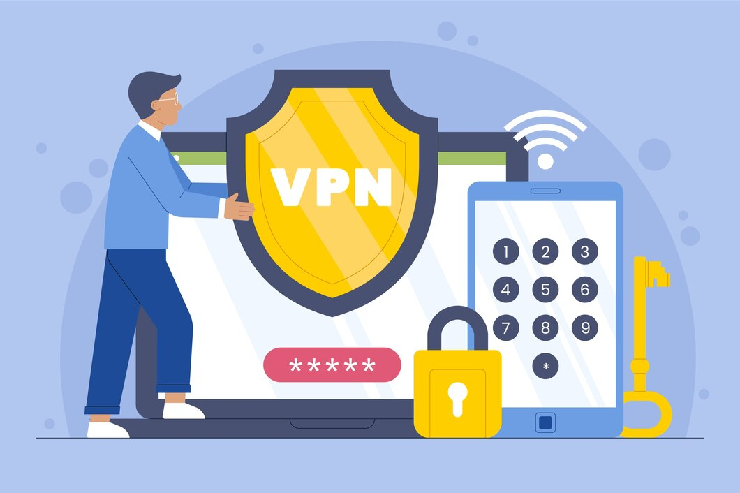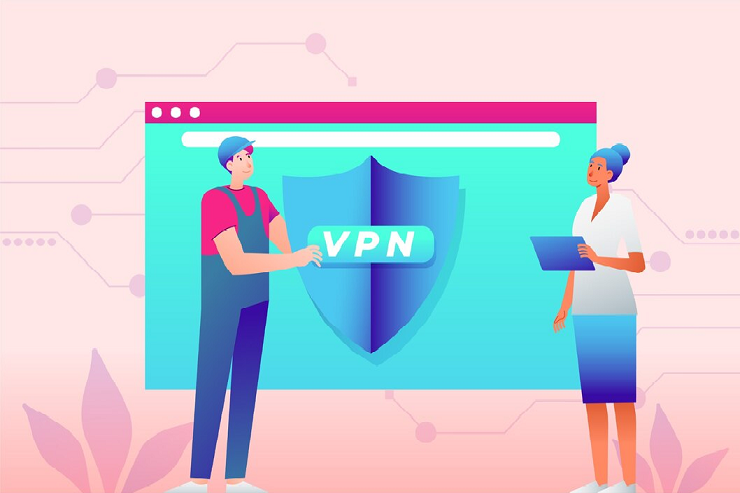
In this era of digitalization and the internet, there are very few things done offline. People are storing their personal and financial details online for easy accessibility, while also sending and receiving confidential information. The majority of people are under the impression that their data is safe. But how true is it?
As your company’s information may be vulnerable. You must use effective key strategies to help protect your company’s data.
Everything a person does on the internet is visible and can be accessed by hackers, the government, and their internet provider. From our personal information to our browsing history nothing is safe from the prying eyes unless our data is protected by a VPN (a virtual private network).
But nowadays there is no shortage of VPN scams either. Scammers trying to take our money or access our personal information are present on the internet in abundance. They are just waiting for us to make a mistake. Therefore, to avoid being caught in such VPN scams, and attacks, we have made a list of the common VPN scams and what we can do to prevent ourselves from them.
1. There Is No Such Thing As A Free Lunch
We may have often heard that everything done has a purpose behind it and no one does anything without getting in return. The same thing is applicable for services that claim to provide ‘free’ VPN. Companies that provide free VPN, are not doing it out of the goodness of their hearts. There’s a very good chance that they are banking on your browsing information, your personal details and selling it to third party websites, under the guise of ‘free’. Do not fall for this trap!
How Can You Avoid It?
Avoid using free VPN service providers. It’s worth the money if it protects your confidential information from scammers and such.

2. Casual And Sloppy Work
Any company that is established, genuine and trustworthy will never post information that is riddled with spelling and typing errors. Professional companies make it a point to publish verified, triple-checked information that is free of grammatical errors. It is the foundation of any verified company. But, with companies that are probably a scam, they will not invest the time and money required to make an error free description. The description in all likelihood will contain generic statements that do not exactly elaborate the features of the company.
How Can You Avoid It?
Read the description, title and any other information with focus and attention. If the company is fake, there is a very good chance that its data will be sloppily written. Maybe there will be punctuation errors or spelling mistakes or even basic grammatical errors.
3. Untrustworthy Google Play And App Store Reviews
It is a known fact that reviews on Google play and App store cannot be trusted because they can be bought. A very strong indication of a VPN scam app is only 5 or 4 star reviews. Moreover, these reviews are written like advertisements. They lack a personal touch. A genuine review usually contains the benefits of using that product or service but also a list of things that can be improved or are lacking.
Any app that has only raving reviews about it in very strong likelihood is fake.
How Can You Avoid It?
Be sure to check the average number of reviews of the VPN app. An application with a mixture of 1-5 star reviews, with more reviews of the latter category is a worthwhile application. However, like we said before, reviews can be purchased. Therefore, it is equally important to read the reviews and scan them for their content. Reliable reviews will be critical and appreciative. Fake reviews will be only full of unnecessary praise.

4. Subscription For Lifetime
Another common VPN scam is when VPN providing services try to rope people in by providing the service for a lifetime at a very nominal amount to be paid only once. While the VPN service provider may be genuine and provides security, it usually only happens for a month or two and then the problems start rolling in. From decreased browsing speed to irritating ads to leaking personal info. Apps that provide a lifetime package at very decreased rates are not trustworthy.
How Can You Avoid It?
Never partake in any VPN subscription that promises its services for a lifetime at a minimal rate that is only charged once. However, don’t confuse it with a VPN providing service that charges a nominal rate monthly to provide services for a lifetime.
5. VPN Apps That Require Personal Info
VPN apps or services do not need personal information like phone number and address. Period. If a VPN service is asking you for them it is most likely a scam. When these services ask you for this information, it is almost always because they want to sell it to third party apps.
How Can You Avoid It?
Most of the well-known VPN providing services companies do not ask for your personal information. Therefore, if a company is asking for your phone number or address, do not indulge in it.

6. Compatibility Issues
A very subtle scam that is done by VPN providers is mentioning the compatibility of the app/software in the fine print, which is not often read by people. Consumers pay for the pricey subscription of the VPN, only to realise later that it is only compatible on a phone or laptop or with certain softwares.
How Can You Avoid It?
Make sure to read the reviews of people, so that you don’t end up facing the VPN scams. Also check the devices and softwares the service is compatible with before buying it.
